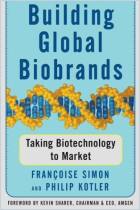Synthetic biology will soon improve or even completely supplant most industrial processes and products in use today. Synthetic biologists can modify microorganisms to churn out any protein they like, and can harness metabolic processes in vitro. These microorganisms generate less waste than current methods, can be grown indefinitely on site, and can release manufacturers from the constraint of relying on expensive or difficult to procure raw materials. If you make or use products such as textiles, drugs, chemicals or foods, synthetic biology will impact your life. Now is a great time to start learning about this revolution and prepare for it.
Synthetic biology is about to disrupt your industry.
Synthetic biology, or “syn-bio,” is the ability to tailor biological components and processes to human’s own ends. Synthetic biologists can insert custom-made DNA sequences into microorganisms to make pretty much any protein, releasing manufacturers from the constraint of raw material availability and enhancing sustainability.
Cell-free systems allow corporations to harness and monitor all sorts of metabolic processes. Most manufacturing industries are ripe for disruption by this transformative capability at some point in the relatively near future.
Syn-bio is transforming products and processes to make them greener and cheaper.
The most dramatic thing synthetic biologists can do is make completely new products and processes that are more sustainable than anything already out there. The synthetic meat industry is a prime example of this sort of innovation. Products from companies such as Impossible Foods, Beyond Meat and Eat Just command premium prices because their sustainability and lack of environmental impact appeals to certain consumers...
François Candelon, Matthieu Gombeaud, Georgie Stokol, Vinit Patel, Antoine Gourévitch and Nicolas Goeldel are professionals with the Boston Consulting Group.















Comment on this summary